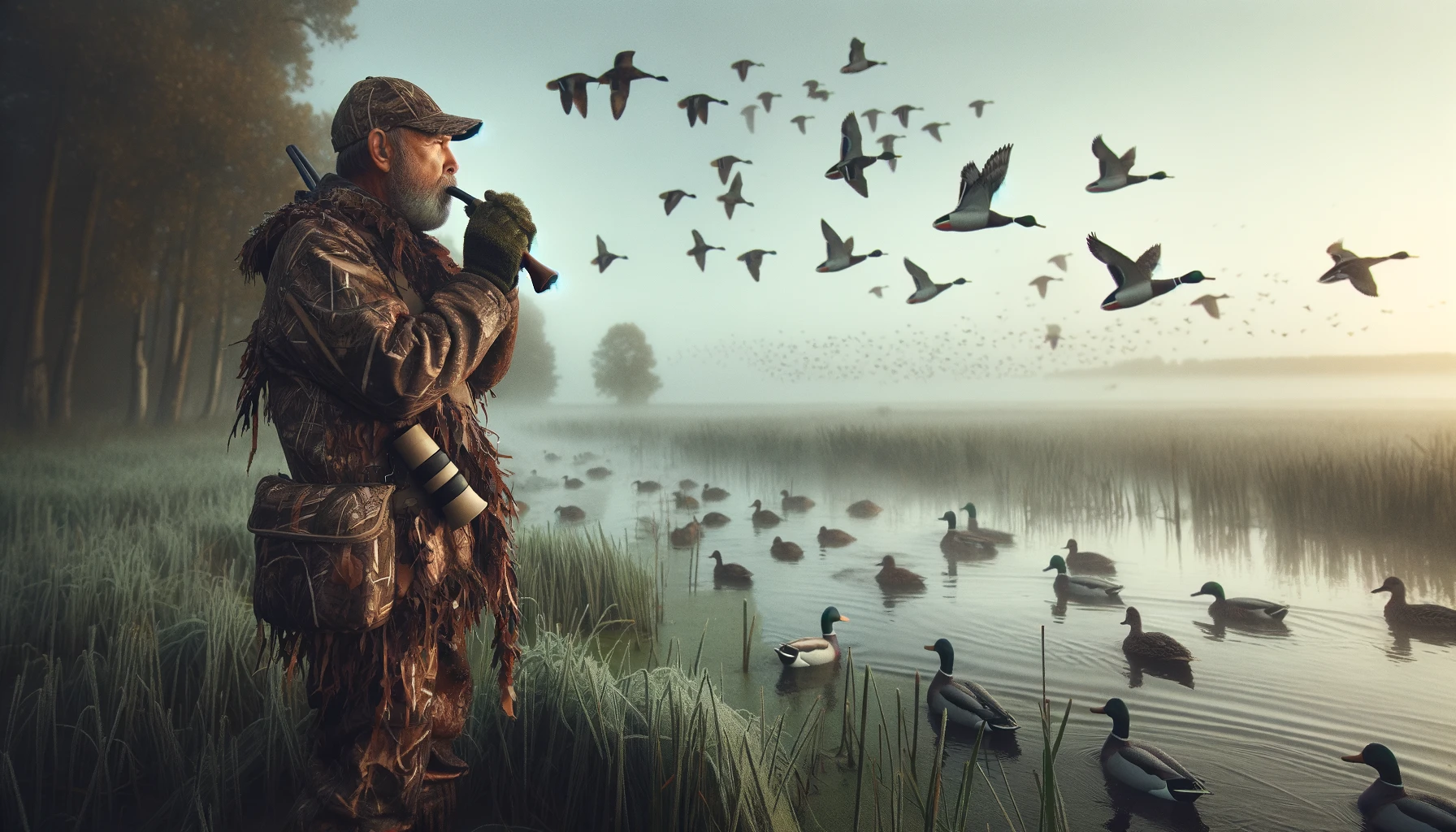
Table of Contents
As the duck hunting season progresses into its later stages, the birds become warier, having been exposed to various calling strategies and hunting pressures. This change in behavior requires hunters to adapt their calling techniques to continue attracting ducks effectively. This guide delves into the nuances of late-season duck calling, offering insights and strategies to help hunters fine-tune their approach during the challenging tail end of the season.
Late-season ducks are more cautious and can distinguish between real and artificial calls more effectively, thanks to their prior encounters with hunters. These birds often travel in smaller groups, are less vocal, and tend to visit feeding and resting areas at irregular times. Adapting to these behaviors is crucial for late-season hunting success.
Late-season duck calling requires patience, observation, and a willingness to adapt. By understanding the behaviors of wary ducks and adjusting your strategies accordingly, you can increase your chances of a successful hunt. Remember, sometimes the art of calling is knowing when not to call and letting the natural allure of your decoy spread do the work.
Ducks become more cautious due to increased hunting pressure and exposure to calls, making them wary of sounds and patterns they associate with danger.
While aggressive calling can still work, it’s generally more effective to use a subtler approach, focusing on realism and matching the natural duck activity in your area.
Decoys remain crucial but consider using fewer and more realistically arranged decoys to reflect the wary nature of late-season ducks.
While dawn and dusk can still be productive, late-season ducks may feed at atypical times, so staying flexible and observing local patterns is key.
Listen to recordings of real ducks, observe ducks in their natural habitat to understand their late-season behaviors, and practice mimicking these sounds with your calls.
By tailoring your approach and honing your calling skills, late-season duck hunting can be just as rewarding as the early season, offering unique challenges and opportunities to connect with the wilderness.
When you’re building or upgrading your AR-style rifle, one of the key decisions you’ll face…
When it comes to tactical rifle scopes, not all optics are created equal. The differences…
In today’s age of high-tech hunting, drones have transformed the way hunters scout terrain, locate…
Every hunter knows that a steady shot can make or break a hunt. Whether you’re…
Smart rifle scopes have shifted from niche gadgetry into practical tools for hunters, competition shooters,…
Hunting isn’t just a sport it’s a legacy of stewardship, respect for nature, and hands-on…
This website uses cookies.